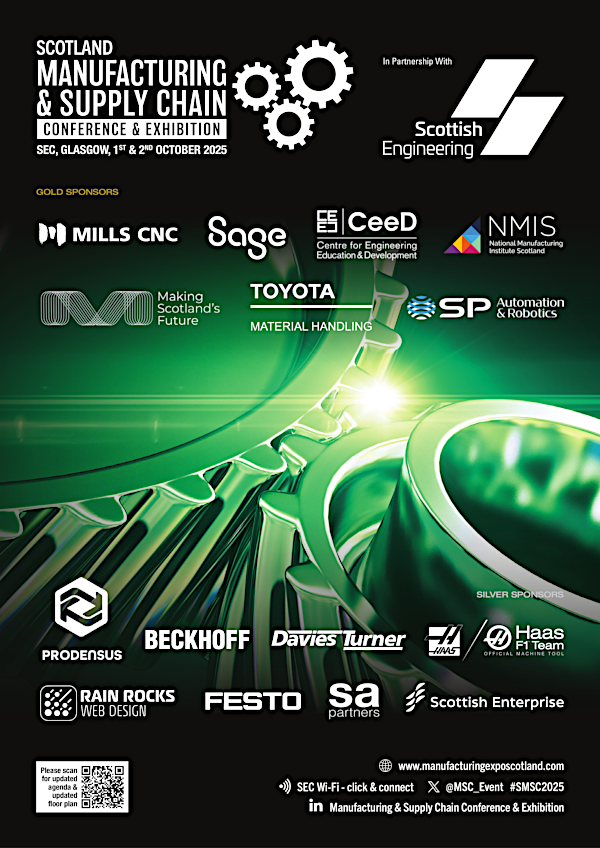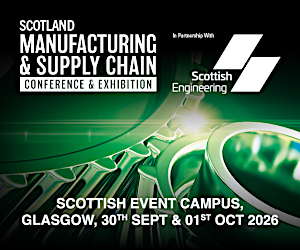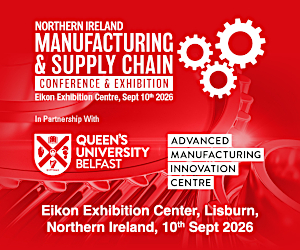The National Sustainability Summit – 23rd February 2023 – The Leopardstown Pavilion, Leopardstown Racecourse, Dublin
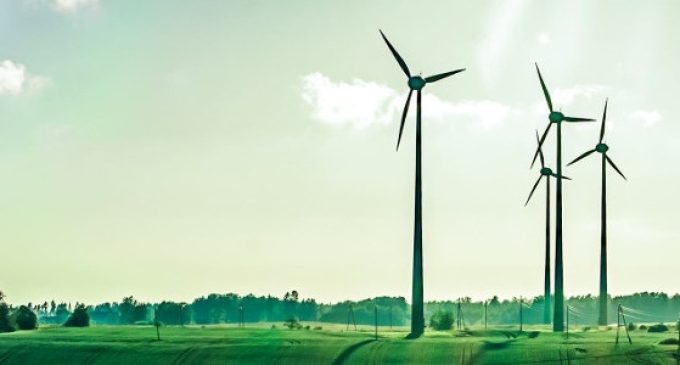
The National Sustainability Summit, being held on 23rd February, 2023 at The Leopardstown Pavilion, Leopardstown Racecourse in Dublin, will focus on the new opportunities for businesses and enterprising individuals arising from the Government’s Climate Action Plan, which aims to achieve a cleaner, safer and more sustainable future for Ireland, and the newly published White Paper on Enterprise, which sets out the country’s ambition for a green and digital economy.
Embracing every relevant sector – electricity, enterprise, housing, heating, transport, agriculture, waste, and the public sector – the Climate Action Plan identifies how Ireland will achieve its 2030 targets for carbon emissions, and puts the country on a trajectory to achieve net zero carbon emissions by 2050. Adopting the same model as the Government’s Action Plan for Jobs, it sets out over 180 actions, together with hundreds of sub-actions that need to be taken.
For example, the Climate Action Plan aims to: move to 70% renewable electricity by 2030 – currently only 30% of our electricity comes from renewable sources; introduce 950,000 electric vehicles onto our roads and deliver a nationwide charging network; ban the sale of petrol/diesel cars from 2030; deliver reductions in greenhouse gas emissions in agriculture; and eliminate non-recyclable plastic while imposing higher fees on the production of materials which are difficult to recycle.
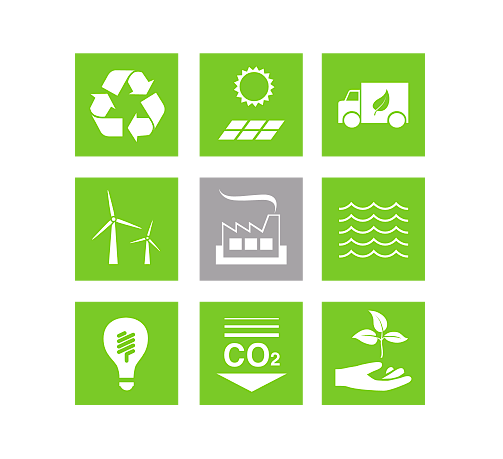 The Government White Paper sets out an ambitious vision for Ireland’s enterprise policy, to protect Ireland’s strong economic position, and respond to challenges and opportunities that have emerged as a result of the COVID-19 pandemic, wider economic and geo-political developments, digitalisation and an increased urgency to decarbonise industry. The vision of the White Paper is to enable Irish-based enterprise to succeed through competitive advantage founded on sustainability, innovation and productivity, delivering rewarding jobs and livelihoods.
The Government White Paper sets out an ambitious vision for Ireland’s enterprise policy, to protect Ireland’s strong economic position, and respond to challenges and opportunities that have emerged as a result of the COVID-19 pandemic, wider economic and geo-political developments, digitalisation and an increased urgency to decarbonise industry. The vision of the White Paper is to enable Irish-based enterprise to succeed through competitive advantage founded on sustainability, innovation and productivity, delivering rewarding jobs and livelihoods.
New Industrial Revolution
According to Taoiseach Leo Varadkar: “A new industrial revolution is underway and that revolution is going to be digital and green. We must make sure that we evolve to benefit from it. We must ensure that our future success is founded on sustainability, innovation and productivity.”
He adds: “Decarbonisation requires all business to take action and invest in change. Government will be there to help businesses reduce their reliance on fossil fuels and improve their energy efficiency in the coming years through a range of initiatives, including knowledge transfer, grants and loans.”
Sustainability Strategies
Irish companies across all industrial and commercial sectors are looking to reduce their ecological footprints and are already pursuing sustainability strategies. Of course, the adoption of sustainability practices can also lead to improving operational efficiency by reducing costs, such as water and energy, and waste.
Through a comprehensive Conference programme accompanied by an extensive exhibition of the latest equipment and technology available, the National Sustainability Summit will enable visitors to keep up-to-date with the latest trends, innovations, best practice and new solutions available. The Summit will address areas such as energy efficiency, waste and resource management, renewable energy, sustainable packaging, optimising water usage and water management, ESG, sustainable building, sustainable transport, environmental protection, biodiversity, and moving towards a circular economy. It will also highlight how the power of data and technology can be harnessed to achieve more transparent and efficient supply chains.
The National Sustainability Summit will also encompass two co-located events focused on renewable energy and waste and resource management.
The Renewable Energy Conference & Exhibition
The Renewable Energy Conference & Exhibition will seek to show how advanced technologies can be harnessed by businesses of all sizes and across all industrial sectors to develop smarter and more effective solutions for energy management. The Event will focus on green energy as Ireland moves to a position of 70% renewable electricity by 2030, in line with the Government’s Climate Action Plan. Currently only 30% of our electricity comes from renewable sources.
With an expected doubling of electricity demand by 2030, renewable energy is the key to ensuring the decarbonisation of the energy and electricity sector in Ireland. Key Sectors involved in Ireland’s efforts to achieve Net Zero include: onshore wind, offshore wind, solar power, hydropower, tidal/wave energy, bio fuels and geothermal energy.
 The Renewable Energy Conference & Exhibition will cover the wide choice of methods now available to industry and business to reduce energy consumption. Innovative energy efficiency solutions including Combined Heat and Power plants, Anaerobic Digestion and Biogas technology, heat reclamation systems, solar panels and solar shading will feature, as will the benefits of implementing Energy Management standard (ISO 50001) as a means of improving the operational efficiency and reducing environmental impact.
The Renewable Energy Conference & Exhibition will cover the wide choice of methods now available to industry and business to reduce energy consumption. Innovative energy efficiency solutions including Combined Heat and Power plants, Anaerobic Digestion and Biogas technology, heat reclamation systems, solar panels and solar shading will feature, as will the benefits of implementing Energy Management standard (ISO 50001) as a means of improving the operational efficiency and reducing environmental impact.
“While weaning ourselves off coal, oil and gas will not be easy, it also presents incredible opportunities for Ireland, specifically in the area of renewable energy production,” points out Taoiseach Leo Varadkar. “In the years ahead, Ireland can become an energy exporter, with the benefits that accompany that – greater energy security and price stability, employment and regional development.”
For example, the Shannon Estuary has the potential to be the premier location in Ireland for offshore renewable energy as well as a transport hub for Ireland, according to the newly published Interim Report of the Shannon Estuary Economic Taskforce. The Taskforce’s Interim Report sets out how the Region can play a leading role in the switch to renewable energy and more climate friendly ways of living and doing business. The Estuary would also become a hub for Sustainable Transport Technologies and a western ‘Digital Gateway’ to Europe.
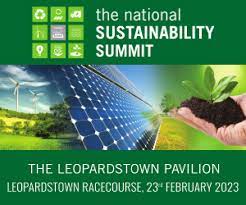 It proposes significant investment in the ports at Foynes and Moneypoint, a new auction for floating wind generation in 2024, and identifying industrial sites for clean energy industries like hydrogen. The Report sets out the Taskforce’s ambition to begin supplying Atlantic Offshore Wind Energy through the Estuary by 2030, with the intention to significantly accelerating it up to 2050. Furthermore, there is also potential in onshore energy generation by installing solar panels, and new anaerobic digestion facilities.
It proposes significant investment in the ports at Foynes and Moneypoint, a new auction for floating wind generation in 2024, and identifying industrial sites for clean energy industries like hydrogen. The Report sets out the Taskforce’s ambition to begin supplying Atlantic Offshore Wind Energy through the Estuary by 2030, with the intention to significantly accelerating it up to 2050. Furthermore, there is also potential in onshore energy generation by installing solar panels, and new anaerobic digestion facilities.
The Waste & Resource Management Event
The Waste & Resource Management Event will showcase innovative methods for preventing waste, and for sorting and recycling waste streams, in order to help Irish businesses in pursuing their individual sustainability programmes. Of course, waste prevention and recycling are not only beneficial to the environment but will also help to cut business costs and enhance efficiency. Furthermore, for some companies, the development of a sustainable business model can be used as an effective marketing aid.
Indeed, Irish businesses and individuals are under a legal obligation regarding waste disposal. Anyone who produces waste has a ‘duty of care’ to ensure that it is handled correctly by an approved operator, and increasing the level of recycling can help to substantially cut the cost of this process.
The Waste & Resource Management Event will seek to show how advanced technologies can be harnessed by businesses of all sizes and across all industrial sectors to develop smarter and more effective solutions for waste and resource management.
It will highlight the importance of waste as a resource opportunity in terms of recycling, and illustrate efficient ways to harness that resource. For example, aluminium cans could be recycled to produce aluminium products including new cans. Recycling an aluminium can requires only 5% of the energy and emits only 5% of the CO2 compared to producing a brand new can. Similar environmental benefits and energy savings result from recycling paper, steel, packaging and plastics.
Irish businesses are investing through Repak to support packaging recycling. Plastics recycling is now firmly in the spotlight and of urgent concern. Currently, a third of all plastics in Ireland are recycled. However, under new EU law, Ireland must achieve a plastic recycling target of 50% by 2025 and 55% by 2030.
The Waste & Resource Management Event will seek to put visitors in contact with experts who can offer practical advice on implementing the most appropriate technologies and approaches to waste minimisation, while at the same time maximising the resources that can be recovered from waste by recycling.
Registration Now Open
Registration to attend The National Sustainability Summit, The Renewable Energy Conference & Exhibition and The Waste & Resource Management Event is now open. Register for free at:
www.sustainabilitysummit.ie/register/
www.renewableenergyevent.com/register/
www.renewableenergyevent.com/register/
The Organiser
In addition to producing successful business-to-business magazines for more than a quarter of a century, Dublin-based Premier Publishing & Events organises some of the largest conferences and exhibitions tailored to the specific requirements of industrial sectors such as manufacturing and its associated supply chain, construction, food & drink manufacturing, technology, sustainability, and biopharmaceuticals in the Republic of Ireland, Northern Ireland, England, Wales and Scotland.
Forthcoming events include:
* Manufacturing & Supply Chain Conference & Exhibition – 23rd & 24th May 20223 – RDS Simmonscourt, Dublin, Ireland;
* Northern Ireland Manufacturing & Supply Chain Conference & Exhibition – 22nd June 2023 – Titanic Exhibition Centre, Belfast, Northern Ireland;
* TechConnect Live – 14th September – RDS Arena, Dublin, Ireland;
* Scottish Manufacturing & Supply Chain Conference & Exhibition – 25th October 2023 – Scottish Event Campus, Glasgow, Scotland.



